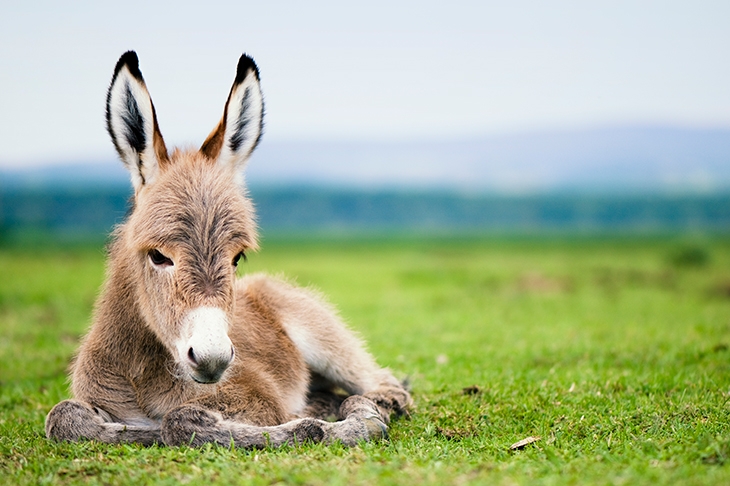We don’t cut God
Sir: The Revd Dr Peter Mullen suggests (Letters, 3 August) that Boris Johnson told him my BBC Great Lives programme had cut from our broadcast treatment of Samuel Johnson an extended discussion of Christianity’s role in Dr Johnson’s life. Boris J championed Samuel J for our programme, and your correspondent has been persuaded that Mr J argued at length the centrality of religion to the great lexicographer.
I am fascinated by religion. My producers would not relegate a person’s faith where it was claimed as central to their greatness. I seem to remember Mr J did say that Dr J’s faith was important to him, and that does appear to be so, but this was commonplace at the time, and if there was anything notable about Samuel Johnson’s personal beliefs it was his strong dislike of religiosity and zealotry. I myself read him as more concerned with morality than spirituality.
Boris Johnson proved a sparkling, energetic and erudite champion of his namesake and this made for a wonderful discussion; but if he had wished to place God at the centre of his hero’s life, I cannot think we would removed Him. More likely our (now) Prime Minister misremembered, or your correspondent misunderstood him.
Matthew Parris
Bakewell, Derbyshire
Scotland’s failing schools
Sir: As Toby Young reported (No sacred cows, 16 July), the Scottish education system now ranks third among UK nations and achieves only average performance in international terms, as measured by the Pisa programme. The annual Scottish Survey of Literacy and Numeracy detailed a sharp decline at all levels in school. The response of the SNP government to this state of affairs? To remove Scotland from the Pisa programme and discontinue the survey.
Compared with England, less than half the percentage of children from disadvantaged backgrounds attend university. This shocking statistic belies the Scottish government’s professed commitment to social justice. As the 2015 OECD report ‘Improving Schools in Scotland’ concludes: ‘It is worse to be poor in Scotland than in any part of the UK.’
Scotland’s Curriculum for Excellence (CfE) is to blame. It lacks both standards and sensible assessment strategies. Effective teaching methods were overthrown for previously untested methodologies. Well, they have been tested now! In 2011 the Scottish inspectorate lost its independence. It merged into Education Scotland, the body responsible for CfE. Inspectors no longer assess school effectiveness but school compliance; they count the projects, themes and activities. The last bastion of high standards has fallen, and the young people of Scotland are paying the price.
Carole Ford
Former president of School Leaders Scotland, Glasgow
Great Central memories
Sir: Warm childhood memories of the thrill of transport by steam train were reawakened on reading ‘An alternative route’ (3 August). In the 1950s I travelled with my parents from Rugby Central to Oxford by that route to visit my grandmother. When Beeching closed it down a decade later, my father stated with feeling that one day such an act of folly would be regretted. He should have known, because he followed that route throughout the war years every weekend, from his family home in Oxford to Rugby, where he was apprenticed as an electrical engineer at BTH. I sense my father’s warm support for Ross Clark in championing the reopening of perhaps the finest railway line our Victorian ancestors ever built.
John Walker
Abingdon
Ad and subtract
Sir: Paul Burke is right to suggest that the ad industry has become more left-wing, and it was interesting to read that the Vote Leave campaign could not find a major agency willing to take on its account (‘Just do it’, 3 August). With the announcement that the government intends to spend more than £100 million on advertising in the run-up to 31 October, it will be interesting to see if any of them refuse to take on this account. A principle isn’t a principle until it costs you money.
Rick Sareen
London NW11
The best pollinators
Sir: While wasps perform a very useful function in our gardens hoovering up pests, killing them would not deprive the world of pollinators (Letters, 3 August). Pollination is the specialisation of honeybees, bumblebees and solitary bees, which are all covered in hair to collect and distribute pollen. At this time of the year wasps are not the friends of beekeepers, as they try to enter beehives to steal honey.
Jim Vivian-Griffiths
Master beekeeper, Monmouth
Animal cruelty
Sir: In her piece comparing China and Britain, Cindy Yu did not mention China’s gross cruelty to animals (27 July). It has driven the tiger to near-extinction, not to mention the rhino. Millions of its people believe the nonsense that animal parts have some medical benefit. The latest victims are donkeys. Millions of them are skinned each year, their hides boiled down to a jelly for medicine and face creams. China, unlike the West, has little respect for animal welfare.
Carol Gibbons
Peacehaven, East Sussex
A reason to fly
Sir: Mark Palmer’s ‘Notes on… London City Airport’ (27 July) hit a nerve with me. Our nearest airport is Dundee. For a while it was possible to drive 15 miles, park (for free) and walk to the terminal; next stop City airport. Today the only flight to London from Dundee goes to Stansted. We now travel by train.
Fiona Treffry
Newtyle, Angus






Comments